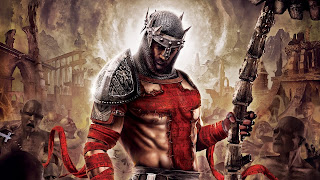I'd come to give a radio interview, but neither the red phone by the door ('call to access Premier Christian Media'), nor urgent knocking, nor even phoning the 0800 number I'd been emailed, seemed to be getting me any closer to actually getting into the place.
This would have been a shame; many of my friends tell me I have the perfect face for radio.
I persevered. On trying the 0800 number a second time, I reached an apologetic chap who'd been answering a call of nature for the previous eight hours. Or so it seemed to me. He let me in.
Premier is a fairly large concern, judging by its spacious open-plan offices with room for a hundred or so - then empty it being Saturday, apart from me, the (now-relieved) doorman, and Nage, the presenter who would interview me (at that point live in the studio). Nage (pronounced 'Naj') later told me that 'The Big Breakfast', the show in which I would feature, has about half a million listeners.
 Why was I there? Last Saturday was 'London Jesus Day', a colourful event hosted by the Jesus Army in central London. More than a thousand Christians marched from Hyde Park Corner via Picadilly Circus to Trafalgar Square where a lively rally was held for a few hours. It was nothing to do with protest and everything to do with celebration.
Why was I there? Last Saturday was 'London Jesus Day', a colourful event hosted by the Jesus Army in central London. More than a thousand Christians marched from Hyde Park Corner via Picadilly Circus to Trafalgar Square where a lively rally was held for a few hours. It was nothing to do with protest and everything to do with celebration.My chat with Nage went went well, I think. Or at any right that's what two very important people told me, in texts sent straight after I went off air (my boss and my mum).
And yes, a number of Premier's half a million listeners came along to the event. A number a little lower than half a mil, it's true - but I'm still glad I made that 0800 call a second time.
Have a listen. The event happened last Saturday, so you've missed it this year! But, all being well, we'll be doing it again next year - so why not look out for the date and come along an join us? All are welcome; the more, the merrier.


